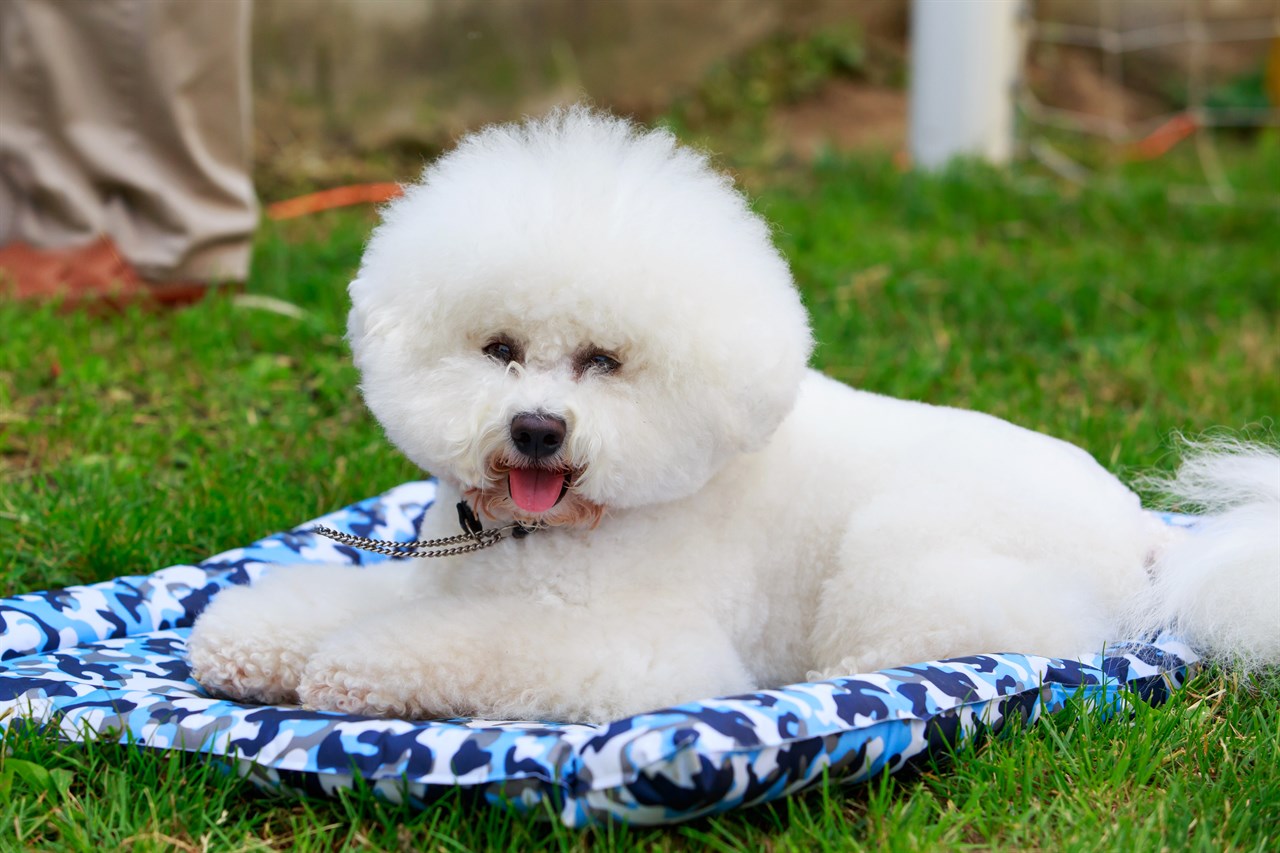Sleeping Requirements and Habits of the Bichon Frise

Just like humans, dogs need adequate sleep to stay healthy and happy. The Bichon Frise, with its playful and active nature, may have specific sleeping requirements and habits that reflect its energy level and temperament. Here's a closer look at the sleeping needs and habits of the Bichon Frise:
- Sleeping Hours: Bichon Frises typically require 12 to 14 hours of sleep per day, depending on their age and activity level. Puppies and young dogs may need more sleep, while older dogs might require slightly less.
- Day-Night Balance: Bichon Frises are adaptable to their owner's schedule. They can adjust their sleeping patterns to match the household's activity level. However, they do tend to be more active during the day and may take shorter naps.
- Playful Nature: Bichon Frises are known for their playful and lively temperament. They enjoy playtime and interaction with their human family members. They may take short naps throughout the day between bouts of play.
- Comfortable Sleeping Spots: Bichon Frises often seek out cozy and comfortable sleeping spots. Many enjoy resting on soft beds or couches, and some even like to cuddle up with their owners.
- Nighttime Sleeping: Bichon Frises typically adapt well to their owner's nighttime routine. They are comfortable sleeping in their own designated area, such as a crate or a dog bed, but many are also happy to share a bed with their human companions.
- Restful Sleep: To ensure a restful sleep for your Bichon Frise, it's important to provide a quiet and comfortable sleeping environment. This can include a cozy bed or crate and a dark, quiet space to minimize disturbances.
- Exercise Impact: The level of exercise your Bichon Frise receives during the day can impact their sleeping habits. Regular exercise and mental stimulation can help ensure they get a good night's rest.
- Age-Related Changes: As Bichon Frises age, their sleeping patterns may change. Older dogs tend to sleep more and may experience shorter, lighter periods of sleep. They may also be more sensitive to changes in their routine.
- Behavioral Changes: If your Bichon Frise experiences sudden changes in their sleeping habits, such as increased restlessness or excessive sleepiness, it could be a sign of an underlying health issue.
Consult your veterinarian if you notice significant changes in their sleep behaviour.
In summary, Bichon Frises have specific sleeping requirements and habits that align with their active and social nature. Providing them with a comfortable sleeping area, regular exercise, and a consistent daily routine can help ensure they get the rest they need to stay healthy and happy. Additionally, as they age, be mindful of changes in their sleeping patterns that may indicate age-related changes or health concerns.
Bichon Frise puppies for sale
- Find Bichon Frise puppies for sale in ACT
- Find Bichon Frise puppies for sale in NSW
- Find Bichon Frise puppies for sale in NT
- Find Bichon Frise puppies for sale in QLD
- Find Bichon Frise puppies for sale in SA
- Find Bichon Frise puppies for sale in TAS
- Find Bichon Frise puppies for sale in VIC
- Find Bichon Frise puppies for sale in WA